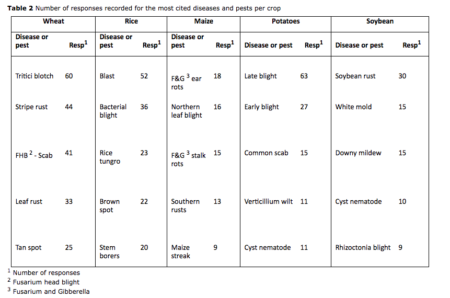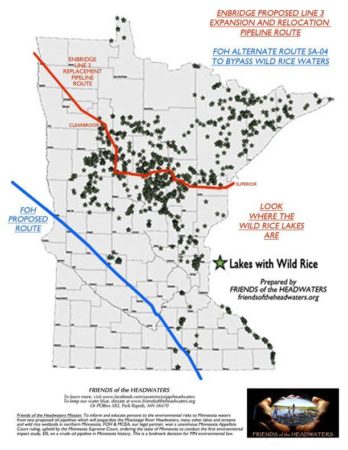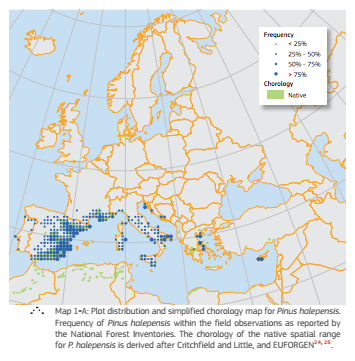Readers with a long memory will remember the Global Crop Loss Survey, which we blogged about here back in November. Just to remind everyone else:
Over a period of three months (November 2016 – January 2017), 1142 responses from 216 respondents in 67 countries were recorded during the Global Crop Loss Survey organized by the Crop Loss Subject Matter Committee of the ISPP [International Congress of Plant Pathology]. This appears to be the first Survey of this kind ever conducted.
Well, some preliminary results are out.
At this stage, a key question concerns the overall representativeness of the information gathered. Across all five crops, experts have reported losses lower than 1% in 15.4% of the cases, between 1 and 5% in 37.3% of the cases, between 5 and 20% in 33.7% of the cases, between 20 and 60% in 11.5% of the cases, and higher than 60% in 2.1% of the cases. A simple aggregate weighted average of these losses, in which loss levels are weighted by their reported frequencies, gives an overall crop loss of 11.7%. This figure would represent the average loss caused by an average disease (or pest), (1) when occurring, and (2) in the absence of any other disease or pest. Although a preliminary result, the estimated average loss is well within the ranges of global or regional crop losses that have been reported in the literature.
The money table is this:

Would be interesting to compare these data with the investment being made in breeding against, and indeed in germplasm evaluation by genebanks for, different threats. Analysis is continuing…

 The day after the
The day after the 